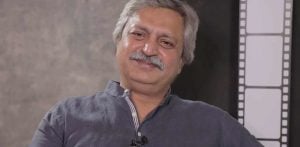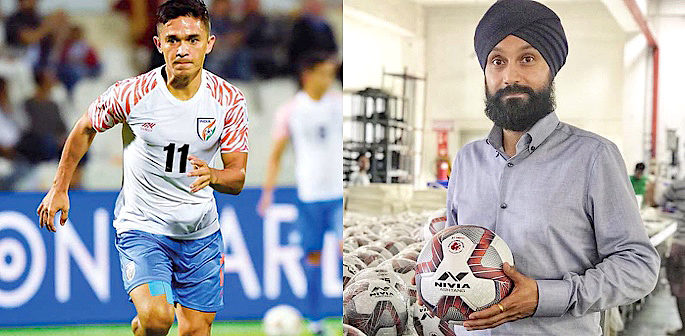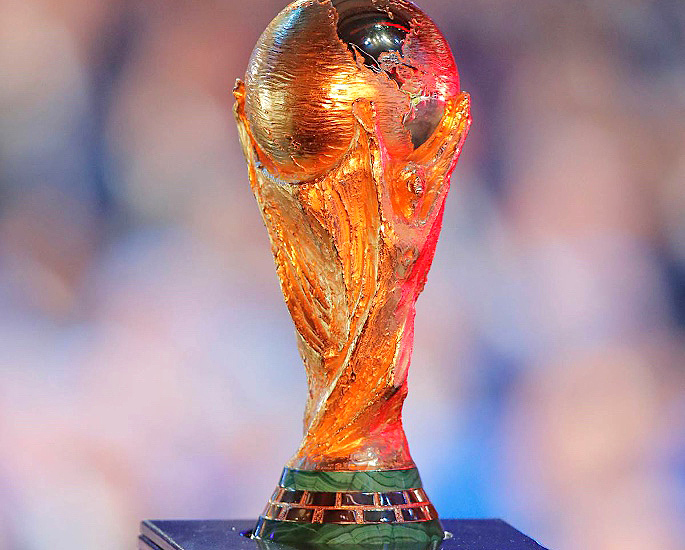"An ideal scenario would be to have a multi-tiered league system"
Inventive Sports (IS) CEO Baljit Rihal has successfully played a pivotal role in the growth and development of Indian football.
The UK based Baljit Rihal is a licensed English FA Players Intermediary. The British Asian football agent is also a registered Intermediary with the All India Football Federation.
Baljit and director Jas Jassal BEM founded Inventive Sports in 2009, identifying the under-representation of Asians in English football.
In 2012, they then established the Asian Football Awards (AFA), supported by the FA (Football Association).
The AFA has proven to be a successful platform to recognise many in the industry, along with highlighting the massive representation imbalance that has existed for decades.
From 2012 onwards, Baljit and IS also became heavily involved with Indian football.
In an exclusive Q&A with DESIblitz, Baljit Rihal reveals more on Inventive Sports beautiful journey with Indian football, the impact of the Indian Super League (ISL) and brokering the NIVIA football deal.
Tell us about the successful journey of IS with Indian football?
We began our engagement with Indian football after hosting the first Asian Football Awards in 2012.
We were introduced by a guest at the awards to a contact at Atletico Madrid. He had shown interest in the Indian football market.
Myself and business partner Jas Jassal met their commercial team in Madrid and discussed potential partnerships with I-League teams.
Nothing really materialised from our discussions then. However, it transpired that Atletico subsequently invested in a new ISL franchise, Atletico de Kolkata in 2014.
I like to think that we in some way whet their appetite for Indian football two years earlier. I then took and passed the FA Agents exam in 2012 and planned that our niche would be Indian football.
The inaugural ISL kicked off in 2014 with a franchise-based model very similar to the IPL.
I had previously built up a relationship with Michael Chopra (ex Newcastle & Cardiff). Hence, I proposed him to the league, emphasising his Indian roots.
He was subsequently included in the players draft. He was picked first by David James who was manager of Sachin Tendulkar’s Kerala Blasters franchise. That’s what kick-started Inventive Sports foray into the Indian football market.
As the seasons progressed, we focused solely on international clients. Many players and coaches were contacting us to represent them in the ISL.
It was an advantage hosting the Asian Football Awards. Being interviewed and quoted by mainstream media channels gave me an opportunity to talk about football in India.
The media interaction gave Inventive Sports credibility as trusted consultants for this newly emerging market, further enhancing our brand.
From a personal perspective, completing the deal for Steve Coppell to become head coach of the Kerala Blasters was one of the most pivotal points in firmly establishing our reputation in both India and the UK.
We subsequently completed deals for Steve to Jamshedpur FC (owned by Tata) and ATK (owned by the Goenka Group).
We also worked with Iain Hume, ex Leicester City and Canadian international.
“After six seasons in the ISL, he is known as probably the most well-respected foreign player.”
Other notable international dealings have been with the following:
- Nerijus Valskis, Lithuania international and golden boot winner in last seasons ISL (Chennaiyin FC).
- Raphael Augusto, from Brazil who currently plays for Bengaluru FC.
- Lucian Goian, from Romania who captained Chennaiyin FC to the ISL runners up spot.
- Andre Bikey, former Premier League player and Cameroon international.
How has the ISL benefited the growth of Indian football?
In my opinion, the ISL introduced a structured level of professionalism to Indian football.
Improved training facilities, increased support staff, better quality head coaches and team management were introduced.
It initially began as a four-month tournament and subsequently developed into a fully-fledged league recognised by the AFC.
Having international and to a certain extent marquee players of course has, largely, had a positive impact on Indian players.
Players have benefitted being able to play, train and interact daily with professionals. These professionals have had the experience of playing in top European Leagues as well as World Cups and Champions League.
I have seen a noticeable improvement, since the inception of the ISL, in the standard of Indian players. This, of course, is a positive influence that the ISL has introduced.
That being said, there have been some players that haven’t performed or indeed haven’t embraced the spirit of the ISL by respecting their time in the league.
Interest in football as a result of the ISL certainly has increased. This is seen by a growing fan following across the country.
It is essential that clubs invest more in engaging with their fans as they are essentially a club’s greatest asset.
A litmus test of how well a league has impacted Indian standards can usually be measured by the success of a countries national team FIFA rankings.
In 2015, India were ranked 173, their lowest in history. This improved drastically over the next few years with the 100 barrier being broken – partly. I think this was due to the improvement in the levels of players from the ISL.
However, the ranking of Inda has dipped again, something which needs to be addressed quite urgently.
Despite the many improvements associated with the ISL, there have been examples of un-professionalism displayed by a few clubs.
This has included non-payment of wages to both foreign and Indian players and staff.
Some players have reported clubs to FIFA for months of not receiving salaries. This in my mind can paint a negative picture of the ISL.
“I think the ISL can address this by imposing stringent fines and possible expulsion to clubs guilty of this.”
How did the ISL NIVIA ball deal come about and the impact of it?
I was visiting India frequently due to the ISL and this enhanced my network with influential people in the Indian football industry.
I was being contacted by Indian based players asking about representation in the ISL. Thus, as a company, we decided to invest in this aspect of the game.
It was quite similar to my campaigning for Asians in Football through the awards in the UK. I guess it was our way of getting more involved in the crucial element of the ISL, developing the country’s talent.
We collaborated with two Indian based scouts (Shakeel Abdulla from Kerala and Wilbur Lasrado from Mumbai) and began an Indian player recruitment drive.
We were aware that the Puma ball sponsorship deal was coming to an end. Hence, through my contacts at Reliance and Wilbur’s relationship with established Indian brand Nivia Sports, we initiated discussions.
After months of negotiations, we successfully brokered a three-year multi-crore deal. This allowed the Nivia Ashtang to be the official ball of the ISL.
This was another milestone for Inventive Sports and one we are proud of as we recognised the synergies between the ISL and an Indian sports brand.
For those who don’t know, Nivia Ashtang is a FIFA Pro category approved ball. This is the highest quality certification that FIFA can grant on the quality of the ball.
The ball has to pass stringent quality parameters in achieving proper bounce, water absorption and roundness.
The final trials occur at the FIFA designated laboratory in Switzerland to get this certification and to be eligible to be used at the highest level of international matches.
This certification is a testament to the strictest manufacturing standard upheld at Nivia.
This deal widened our horizons and helped redefine our strategies going forward. We have been consulting for many global and Indian brands.
“We are excited about the development of these projects, which cover many sports.”
How can the ISL Razzmatazz return to develop local players further?
The first ISL began with a lot of fanfare with each team being required to have a marquee foreign player.
Many popular names have played in the league. They include Roberto Carlos, Nicolas Anelka, Florent Malouda, Diego Forlan, Robbie Keane, Tim Cahill, Robert Pires and Freddie Ljungberg.
As the league progressed the marquee player rule was dropped and only a couple of teams opted to utilise this.
I believe to regain that razzmatazz of the first two seasons, the ISL should bring back the marquee player requirement.
Of course, this would mean that clubs would need to spend more money. This I believe some clubs would quite readily do.
But generally, I think in the interests of keeping the league more competitive, the ISL isn’t willing to remove salary caps.
ISL teams usually field foreigners in attacking positions. This has resulted in Indians not developing in these positions.
This has reflected in the national team, with a constant reliance on India’s best-ever player, Sunil Chhetri.
With his advancing years, there certainly needs to be strong candidates in these forward positions. Otherwise, India’s rankings could potentially dip further.
There has been a call for the number of foreigners to decrease giving more game time to Indians. There are pros and cons to both.
The media production of the league has been of a very good standard in India. However, in my view, the coverage globally has been quite a disappointment.
In the UK, with probably the largest Indian NRI diaspora, initial coverage was on Indian channels usually reserved for soap operas.
This wasn’t advertised well and the viewership figures were very low. Some seasons haven’t been broadcast at all in the UK.
It’s one aspect I think the ISL and indeed UK broadcasters really need to embrace to heighten the interest in the league.
“The ISL can follow the IPL cricket model.”
Even a known media has not embraced it despite a few attempts by me to get them involved early on.
It’s an opportunity missed and certainly, I hope media houses re-look at, especially as more British Asian players could be getting involved.
What are your thoughts on the two league conundrum: ISL vs I-League?
After years of discussion and deliberation, the ISL is now recognised as the de-facto premier league in India.
Understandably the present I-League teams are feeling hard done by, especially as there won’t be a promotion or relegation system in place for a few years.
Defending I-League champions Mohan Bagan have merged with ISL team ATK FC. There is talk of East Bengal entering the ISL arena too, which would further alienate the present I-League structure.
The ISL has operated a franchise MLS type system for six seasons. While that has increased visibility and popularity of football in India, it has also been detrimental to the teams in the I-League.
Up until last season, the I-League was officially the country’s premier league as far as the AFC was concerned.
However, the reality is that the finances and prestige behind the ISL ensured they were the number one choice for players and fans alike.
The might of Reliance has seen them take a stronghold on Indian football. This has also ensured that the ISL is India’s answer to the Premier League. Their entry has, of course, brought structure and popularity to the game.
“An ideal scenario would be to have a multi-tiered league system which had incentives of promotion and indeed relegation. This would further encourage investment into clubs.”
“The overarching Indian leagues should have teams from cities across India being represented.”
Though, the harsh reality may be that due to historical factors we may not see the diverse representation. In the short term, that is required to really help India embrace the game.
The unfortunate COVID-19 pandemic has and will affect leagues across the world. India’s league structure will suffer too I believe as a result.
There are already financial concerns being raised by ISL clubs. I fear some I-League teams may just shut up their shop as continuing to run won’t be viable.
Will Indian heritage players in the west have the chance to represent India?
So, my journey in football began with the Asian Football Awards. They were designed to help reward and recognise South Asians in UK football.
A massive part of the British Asian makeup is the very big Indian community. I am passionate about flying the flag for British Asians.
However, I also see a massive opportunity for those of Indian heritage to get involved with the Indian national team.
The blocker for a number of years has been that the Indian government have stated that one can only represent India if an Indian passport is held.
Unlike other countries, which allow players with heritage (through parents, grandparents) to represent their nation, India has been steadfast in its stance on this.
There have been many discussions about allowing OCI/PIO’s eligibility, but these to date haven’t really been fruitful.
The Indian FA have raised this issue again and it feels like they have done so with more gusto compared to previous attempts.
I spoke with Indian national team head coach Igor Stimac and Indian Super League CEO Martin Bain about this in 2019.
“They were both very supportive of trying to push this through.”
So, from what I understand, this has been raised up to Sports Minister level and many are hoping for a positive decision.
If (and it’s a big IF), OCI/PIO players are allowed, I firmly believe there are Indian heritage professionals (who would qualify) globally, but predominantly from UK, Europe and North America that could make an instant impact.
Examples include Yan Dhanda (Swansea City), Danny Batth (Stoke City), Dilan Markanday (Spurs), Mal Benning (Mansfield), Simranjit Thandi (AEK Larnaca) and Dinesh Gillela (Bournemouth).
There has also been a recommendation that should eligibility be granted then ISL and I-League teams will be allowed one OCI/PIO slot.
Again, if this happens, I would be very happy as this gives further opportunities for those of Indian heritage to showcase their talent. Fingers crossed on this one!
Can India qualify for the world cup and what is the future roadmap?
The way things stand with India’s FIFA ranking really hits a hard message home that they are simply not of the quality to be in a world cup any time soon.
The best chance perhaps would be if they host the world cup and receive automatic entry.
On that note, there has not been any expressions of interest from India for the 2030 or 2034 competitions.
If the government allow OCI/PIO (players of Indian heritage) to play for the national team, I think there could be a slight possibility of India qualifying, on merit, for the World Cup in 2030.
The chances could also be increased by the expansion of the number of teams allowed entry too.
The involvement of Reliance and the ISL product has certainly put some structure in place, even though one can argue that the way it was done wasn’t ideal, especially with an existing league in place.
There really needs some foresight into making football a real powerhouse sport across the country – something to at least give cricket a run for its money.
That, in my opinion, is having a well thought out competitive league system in place, which covers all the states so that it can become a fabric of the sporting make-up of the country.
There needs to be dedicated government funding in place that alongside the corporate investment can get India into a respectable FIFA ranking as well as being able to compete in major competitions.
A substantial injection of resources at the grassroots level is also required, especially in those regions that already display their love for football.
“There is a plethora of untapped raw talent in villages and towns that need to be embraced and nurtured.”
I am positive about the future of Indian football – and I implore people to get involved as much as they can to help shape its destination.
Baljit Rihal and Inventive Sports are definitely moving forward positively. As part of their future plans, they aim to increase operations within India, further consolidating the IS brand as a trusted and well-respected company.
Naturally, Inventive Sports will continually expand on player and coach representations. Projects with global brands for the advancement of Indian football will also be ongoing.
Inventive Sports are particularly focusing on developing their partner network in Europe and across Asia.
Whilst football in India is heading in the right direction, more improvements are needed so that the country can be a force to be reckoned with.





































































